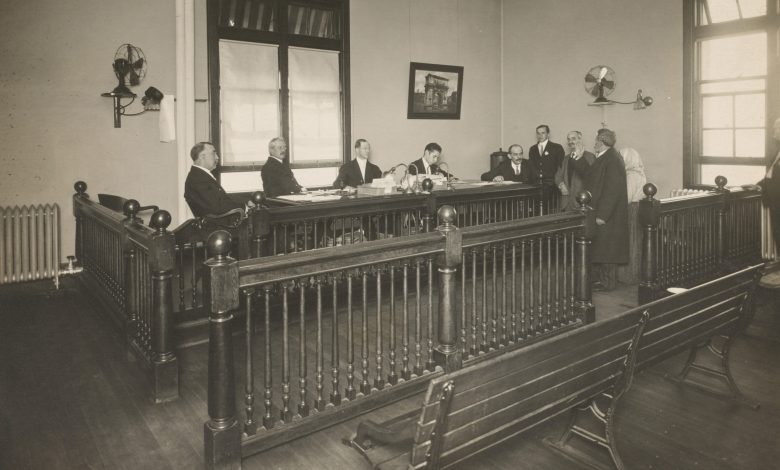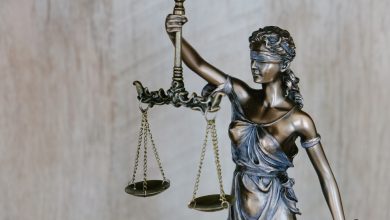History of Felony Disenfranchisement in America

Felony disenfranchisement is a divisive practice that eliminates voting rights for those who have committed a felony. While it may sound practical on the surface, many believe that the origins of felony disenfranchisement were racially motivated. Below, we’ll go over a history of felony disenfranchisement in America and examine the motivation and rationale for continuing the process. We’ll also highlight states that have recently pushed to change their felony disenfranchisement laws.
Origins of Felony Disenfranchisement
Felony disenfranchisement on a large-scale stemmed directly from a backlash against the “equality for all” movement following the Civil War. It began with the Thirteenth, Fourteenth, and Fifteenth Amendments.
The Thirteenth Amendment abolished slavery in the United States. With the Fourteenth Amendment, all people born or naturalized in the United States became citizens of the country, including slaves. Section 1 of the Fifteenth Amendment states, “The right of citizens of the United States to vote shall not be denied or abridged by the United States or by any State on account of race, color, or previous condition of servitude.”
While these amendments seemed clear and concise in their intentions, there was a loophole in the Fourteenth Amendment, which opened the door wide open to pervasive felony disenfranchisement across the country.

The Fourteenth Amendment
Many celebrated the 150th anniversary of the Fourteenth Amendment in 2018. And rightfully so, as the amendment gave citizenship to anyone born or naturalized in the United States, including slaves. The amendment granted all citizens with “equal protection of the laws.”
However, the amendment also created a loophole for states to take advantage of. In Section 2, it asserts that states could deny the vote for anyone with “participation in rebellion or other crime.”
By explicitly allowing states to withhold rights if a crime was committed, this gaping loophole left by the Fourteenth Amendment directly led to the creation of felony disenfranchisement. And with the Fourteenth Amendment acting on the federal level, efforts for disenfranchisement reform can only be made at the state level.
While some states had adopted disenfranchisement laws as early as the 18th century, a largescale surge in these state laws was underway in the post-Civil War Reconstruction era. Disenfranchisement laws were just one of the many Jim Crow laws which racially segregated the Southern United States.

Racial Disenfranchisement
The question some may be asking is, “What does this have to do with race?” Here are a few facts to consider:
- From 1980 to 2000, the rate of drug arrests for black Americans went from 6.5 to 29.1 per 1,000 people. During that same period, the rate of drug arrests for white Americans went from 3.5 to 4.6 per 1,000 people.
- In the seven-year span from 1999 to 2005, black Americans constituted 13 percent of drug users. However, they accounted for 36 percent of those arrested for drug offenses and accounted for 46 percent of those convicted for drug charges.
In the South, the bar was lowered for what kind of crimes constituted a loss of the right to vote directly following the Civil War.
In the 1880s, there was a Florida Supreme Court case in which a person lost their right to vote over larceny of ten cents.
Even into the 20th century, disenfranchisement became more widespread.
“Within the limits imposed by the Federal Constitution…to establish white supremacy in this state. If we should have white supremacy, we must establish it by law – not by force or fraud.”
-Alabama convention president John B. Knox, 1901
That quote from 1901 couldn’t be clearer about the intentions of the Alabama government at the time. It states that people “convicted of a felony involving moral turpitude” would not be allowed to vote without first having their rights restored.
But while that quote is from over a century ago, the Alabama 1901 Constitution was unchanged until 2017. Many similar laws throughout the United States were racially motivated as well. Totaling close to 2.2 million people, black Americans are four times more likely to be disenfranchised than all other racial groups.
Although Alabama was one of the first states to crudely design their racially motivated constitution, the state has made great progress recently. In May 2017, a bill was passed to lessen the severity of the disenfranchisement law by defining the phrase “moral turpitude” for the first time in the state’s history.
By defining exactly what constituted “moral turpitude,” the list of crimes eligible for disenfranchisement was reduced to less than 50. As a result, thousands of people without prior convictions became enfranchised.
Richardson vs. Ramirez
In 1977, three formerly convicted of felons that had completed their sentences were not allowed to vote in three different California counties. On behalf of themselves and other former felons in the state, they carried out a class petition against California’s Secretary of State and officials from the three counties.
With most voting rights cases, states have the burden of showing that the voting limitation is essential to a “compelling state interest” and is also the least limiting way of completing the state’s intention. In the case of Richardson vs. Ramirez, the plaintiffs argued that there was no “compelling interest” to deny them the right to vote. The California Supreme Court agreed. But the U.S. Supreme Court did not, stating that a state does not have the burden of proving a compelling interest in the case of felony disenfranchisement.
The U.S. Supreme Court used Section 2 of the Fourteenth Amendment to explain its decision. In Section 2, it states that felony disenfranchisement laws are not to be held to the same high standards given to other restrictions on the right to vote. This decision made it increasingly difficult to achieve felony disenfranchisement reform.

Felony Disenfranchisement Laws by State
Reform has been painfully slow following the 1977 Richardson v. Ramirez decision. But recently, many states have drastically changed their felony disenfranchisement laws. But with that said, only two states have completely eliminated any form of disenfranchisement. Maine and Vermont are the two states in the continental United States that have abolished felony disenfranchisement, and they are joined by Puerto Rico. Conversely, three states permanently disenfranchise those with felony convictions: Iowa, Indiana, and Virginia.
Here’s a quick look at where each state stands:
Alabama
The reform Alabama had in 2017 is its most recent action. Felony disenfranchisement laws are still in place, but the amount of crimes that qualify has been significantly reduced. Felony disenfranchisement is in place for people serving felony convictions or on probation. Voting rights are restored for those with no prior felony convictions.
Alaska
Those with felony convictions are only disenfranchised while serving their sentence. Upon release, voting rights are restored.
Arizona
Felony disenfranchisement is in place for people serving felony convictions or on probation. Voting rights are restored for those with no prior felony convictions. Those with more than one felony conviction are permanently disenfranchised and must apply to a superior court judge to restore their voting rights.
Arkansas
In Arkansas, those with felony convictions are only disenfranchised while serving their sentence. Upon release, voting rights are restored. Arkansas is one of 19 states to use this disenfranchisement policy.
California
California has come a long way from Richardson v. Ramirez and only restricts those in prison or on parole from voting. Everyone else, no matter the prior conviction or if they are on probation, is allowed to vote. California is among the three states with this type of disenfranchisement law.
Colorado
Colorado is among the states with the least restrictive disenfranchisement laws. Those in prison are not allowed to vote, but they are the only group that is restricted.
Connecticut
Those in prison or on parole are not allowed to vote. But all others that have criminal convictions or are on probation can vote.
Delaware
In Delaware, those with felony convictions are only disenfranchised while serving their sentence. Upon release, voting rights are restored.
Florida
Florida historically has featured some of the strictest disenfranchisement laws in the country. Felony disenfranchisement in Florida came about in 1838, the year the state’s constitution was put into effect.
In Article VI Section 13 of the original constitution, anyone that had been convicted of a variety of offenses lost the right to vote and to hold office in the state government.
In 1868, Florida added a specific felony voting section that disqualified all former felons from voting.
There was no movement to change the law until 1974 when the Florida government decided that disenfranchisement would end after people had served their sentence. But the Supreme Court of Florida had other ideas and overruled the bill. This was the only push to change the voting laws during the 20th century.
Florida still limits some people with felony convictions on their record from voting. But in the November 2018 election, Florida voted 65 percent in favor of Amendment Four, which allowed people previously convicted of a felony the right to vote but still disenfranchising those who had committed murder or sexual abuse.
As a result of the new legislation, over 1,000,000 people will be re-enfranchised. This enfranchisement represents enough new voters to decide the 2020 presidential election.
Georgia
In Georgia, those with felony convictions are only disenfranchised while serving their sentence. Upon release, voting rights are restored. There has been a push recently to reform Georgia’s disenfranchisement laws, as the state Senate reviewed voting laws during the Fall of 2019. However, by December 2019, a panel of Republicans approved a recommendation to continue to ban all felons from voting until they have served out their sentence.
Hawaii
As recently as May 2019, Hawaii had advanced a bill to abolish felony disenfranchisement, which would put them on the same level as only Vermont, Maine, and Puerto Rico. However, the bill expired as it was passed on to other committees. Some have vowed to continue to push for a change to the law, but as it stands, those in prison cannot vote, but everyone else can.
Idaho
In Idaho, those with felony convictions are only disenfranchised while serving their sentence. Upon release, voting rights are restored.
Illinois
Those in prison are not allowed to vote, but they are the only group that is restricted.
Indiana
Just as it is in Illinois, those in prison are not allowed to vote, but they are the only group that is restricted.
Iowa
Iowa is one of three states that permanently disenfranchise those with a felony conviction on their record.
Kansas
In Kansas, those with felony convictions are only disenfranchised while serving their sentence. Upon release, voting rights are restored.
Kentucky
Kentucky, like Iowa, permanently disenfranchises those with a felony conviction on their record.
Louisiana
In Louisiana, those with felony convictions are only disenfranchised while serving their sentence. Upon release, voting rights are restored.
Maine
All citizens of voting age have the right to vote, regardless of incarceration or previous convictions.
Maryland
People serving a sentence in prison cannot vote, but everyone that has been released is re-enfranchised.
Massachusetts
Those in prison are not allowed to vote, but they are the only group that is restricted.
Michigan
Just as in Massachusetts, those in prison are not allowed to vote, but they are the only group that is restricted.
Minnesota
In Minnesota, those with felony convictions are only disenfranchised while serving their sentence. Upon release, voting rights are restored.
Mississippi
Felony disenfranchisement is in place for people serving felony convictions or on probation. Voting rights are restored for those with no prior felony convictions.
Missouri
In Missouri, those with felony convictions are only disenfranchised while serving their sentence. Upon release, voting rights are restored.
Montana
Those in prison are not allowed to vote, but they are the only group that is restricted.
Nebraska
In Nebraska, those with felony convictions are only disenfranchised while serving their sentence. Upon release, voting rights are restored.
Nevada
Those in prison are not allowed to vote, but they are the only group that is restricted.
New Hampshire
Just as in Nevada, those in prison are not allowed to vote, but they are the only group that is restricted.
New Jersey
New Jersey similarly allows everyone to vote other than people currently serving a sentence in prison.
New Mexico
In New Mexico, those with felony convictions are only disenfranchised while serving their sentence. Upon release, voting rights are restored.
New York
New York prohibits people currently in prison or on parole from voting. Everyone else, no matter the prior conviction or if they are on probation, is allowed to vote.
North Carolina
In North Carolina, those with felony convictions are only disenfranchised while serving their sentence. Upon release, voting rights are restored.
North Dakota
North Dakota is among the states with the least restrictive disenfranchisement laws. Those in prison are not allowed to vote, but they are the only group that is restricted.
Ohio
Those in prison are not allowed to vote, but they are the only group that is restricted.
Oklahoma
In Oklahoma, those with felony convictions are only disenfranchised while serving their sentence. Upon release, voting rights are restored.
Oregon
Those in prison are not allowed to vote, but they are the only group that is restricted.
Pennsylvania
Pennsylvania similarly allows everyone to vote other than people currently serving a sentence in prison.
Rhode Island
Just as in Oregon and Pennsylvania, only those in prison are restricted from voting.
South Carolina
In South Carolina, those with felony convictions are only disenfranchised while serving their sentence. Upon release, voting rights are restored.
South Dakota
Just as in South Carolina, South Dakota disenfranchises those with felony convictions while serving their sentence. Upon release, voting rights are restored.
Tennessee
Felony disenfranchisement is in place for people serving felony convictions or on probation. Voting rights are restored for those with no prior felony convictions.
Texas
In Texas, those with felony convictions are only disenfranchised while serving their sentence. Upon release, voting rights are restored.
Utah
Those in prison are not allowed to vote, but they are the only group that is restricted.
Vermont
All citizens of voting age have the right to vote, regardless of incarceration or previous convictions.
Virginia
Virginia is one of three states that permanently disenfranchise those that have a felony conviction on their record.
Washington
In Washington, those with felony convictions are only disenfranchised while serving their sentence. Upon release, voting rights are restored.
West Virginia
West Virginia also takes away voting rights for those serving time for felony convictions. But those rights are restored after the sentence has been served.
Wisconsin
Similar to West Virginia, Wisconsin disenfranchises those with felony convictions while serving their sentence. Upon release, voting rights are restored.
Wyoming
Felony disenfranchisement is in place for people serving felony convictions or on probation. Voting rights are restored for those with no prior felony convictions.



